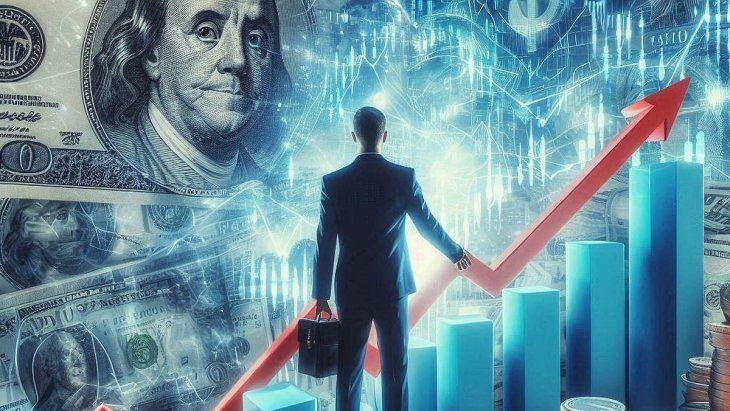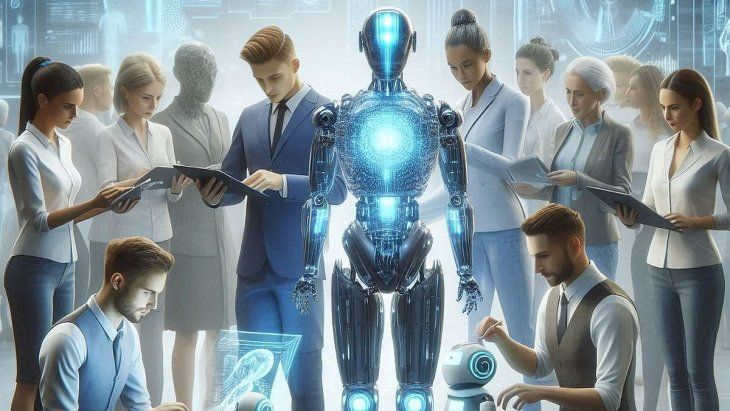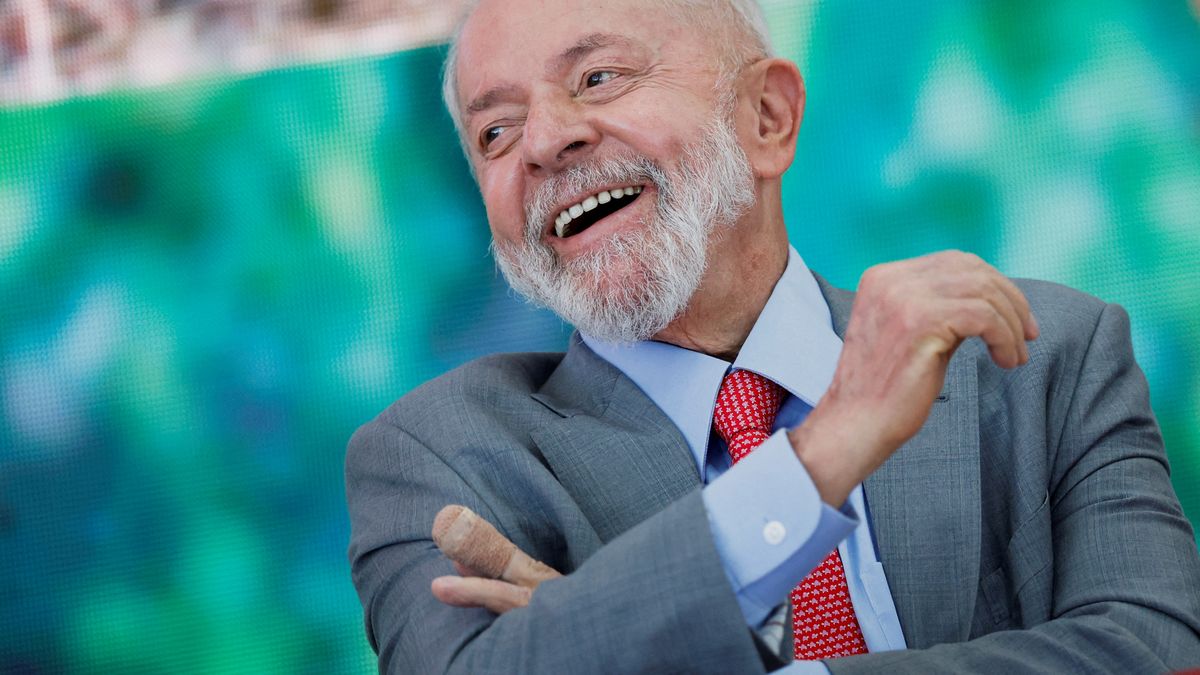one year ago, 6 in 10 CEOs predicted a decline in (GDP), and 2 in 10 predicted a sharp dropinfluenced by the inflationary acceleration and the imbalance of all macroeconomic variables that was experienced at the end of 2023.
For PwCafter the process of strong adjustment of the fiscal deficit and the pronounced drop in inflation to levels below 3% monthly, executives observe today “another horizon.” On the indicator inflationAs mentioned, the drop is much steeper. A year ago, 61% of Argentine CEOs perceived a high exposure of their company to the inflationary process; In the 2025 survey, this percentage (among those who see themselves as highly and extremely exposed) fell by almost half: 33%.
the photo of milei and the businessmen in the llao llao.jpg
Before becoming president, Javier Milei and about twenty businessmen during the meeting at the Llao Llao Hotel in Bariloche.
What do CEOs foresee?
Globally, nearly 60% of CEOs expect growth to increase in 2025, up from 38% last year and 18% two years ago.
Meanwhile, 42% expect to add more staff in the next 12 monthsmore than double those who estimate to reduce it.
However, concern is increasing about the viability of their businesses in the medium term: 42% believe that their company will not be viable beyond 10 years without reinvention, which requires them to use new strategies to advance in the transformation process that involves functioning in a changing environment, in the face of the dual scenario of managing not only for the present but for the future. Within this framework, executive leaders tend to claim that AI has resulted in an increase in staff rather than a reduction.
“We identified two megatrends that will reconfigure the future of business and society and drive the reinvention of organizations in the next decade: artificial intelligence and climate sustainability”he explained Miguel Urus, partner in charge of PwC Argentina.
Urus said that in relation to AI it is observed that CEOs “They have incorporated this topic into their business plans and their organizations are adding these new technologies, working to take advantage of their full potential and carrying out the necessary adaptations for their implementation.”
According to the analyst, an example of this is that more than half of business leaders recognize that “AI has contributed to improving the efficiency of employees’ use of time, while almost half say that this technology has increased the revenue and profitability of their companies.
dollar investments finances.jpg

CEOs report a positive experience from the introduction of new technologies: they think that generative AI has increased productivity and created more jobs than were lost.
Image created with artificial intelligence
Regarding sustainability, the PWC partner said that “Investing in climate and sustainability issues is paying off, with at least one in three CEOs globally reporting that climate-friendly investments made over the past five years have generated higher income.”
The report revealed that in Argentina the trend of last year is maintained, since 83% of companies stated that they have made investments to reduce their impact on their carbon footprint in the last five years. Likewise, for the 61% of respondents these initiatives did not represent a significant increase in costs.
Urus considered that “given the magnitude of today’s global challenges, it is essential that CEOs focus on harnessing the benefits of new technologies to create value and manage risks more efficiently while still achieving sustainable growth”.
What are the threats that CEOs see for 2025?
The PwC 28 Annual Global Survey It was conducted on 4,701 CEOs in 109 countries from October 1 to November 8, 2024, of which 4,236 men, 401 women and 64 who identified with another gender or preferred not to say so responded.
Although the executives consulted are optimistic about the global economy, the macroeconomic volatility (29%) and the inflation (27%) continue to be the main risks for 2025, but with clear differences between regions.
He geopolitical conflict It is considered the highest risk in the Middle East (41%) and Central and Eastern Europe (34%).
In Western Europe, cyber risk (27%) is a marginally bigger concern than a lack of skilled employees (25%) and inflation (24%), with macroeconomic volatility topping the list at 29%.
Inflation is the main concern in Africa (39%), while North America and Asia-Pacific prioritize risks in line with global averages.
Mohamed Kande, Global Chairman of PwCassured that this year’s survey shows how business leaders around the world are optimistic, but know that they must reinvent how they create and deliver value.
“Emerging technologies such as AI, changes in geopolitics and the climate transition are revolutionizing how the economy works. Additionally, we are seeing the formation of new business ecosystems, transforming how companies compete and create value. To thrive, leaders must act now and make bold decisions around your strategy, from people, carbon footprint and supply chain, to reinventing your business model,” he said.
The other threats that CEOs anticipate
Among other threats not strictly linked to the economic situation, the opinions of local directors differ from those of their regional peers in several fields.
For example, regarding the climate changeonly 9% of Argentine CEOs perceive this reality as a high or extremely high risk for their company, unlike the view of Brazilians, who assign it to 21%.
The danger of a cyber attack It gathered 13% of the responses, compared to 26% in the case of Brazilians and 20% in that of Uruguayan executives.
Cybersecurity Artificial Intelligence

The leaders of the world’s leading organizations also identified Artificial Intelligence and climate sustainability as the two megatrends that will shape the planet in the next decade.
Martin Barbafinapartner in charge of Marketing and Communication of PwC Argentinaexplained in this sense that the Argentine CEOs They face this scenario of changes with the conviction that “they will have to work more than ever on organizational efficiencies to achieve objectives, and aware that the correct strategies they define now will impact those goals in the future.”
On this point – said Barbafina – the report reveals that 6 out of 10 executives believe that the democratization of technology will be key to outlining the steps to follow, and 52% will use it to develop new products and services in the next three years.
What do Argentine CEOs think about salaries and employment?
With regard to the risks derived from the social inequality (and the lawsuits linked by wages), only 11% of Argentine executives were concerned about this variable, unlike their Brazilian and Uruguayan peers, who do not see this issue as a significant threat to their organizations.
Within that group, the risk that most concerns local executives is the technological disruptionwhich includes the advances of AI: 30% responded that their company was between highly and extremely exposed to this threat in the performance of their business. Here, the vision of Argentines surpasses that of Brazilians (24%) and Uruguayans (27%) in the same field.
artificial intelligence employment.jpg

Image created with artificial intelligence
Another risk that executives warn about is the lack of collaborators with the skills key for this era of changes, or its low availability for the needs of companies. 22% of business leaders assigned high to extremely high exposure to that situation.
“This year’s survey confirms that one of the main challenges for CEOs is to stay the course while, at the same time, being attentive to the interaction between macroeconomic conditions, geopolitical disruptions and other threats that could still slow the progress of their organizations. In this sense, Argentine business leaders face a future with expectations of economic growth and greater adoption of responsible AI. However, they must carefully manage the risks associated with economic volatility and technological disruption, while continuing to invest in sustainability and organizational efficiency,” he concluded. Barbafina.
How do Argentine CEOs manage?
This year’s survey included a special section with questions that explored how CEOs make strategic decisions and manage their companies’ plans.
Among the conclusions, It stands out that Argentine executives base their management on data and tend to consider different scenarios before opting for a decision.
When establishing strategic lines, they prefer quantitative analysis over intuition. Additionally, six out of ten executives prioritize expected results rather than processes when assessing the quality of a decision. 65% say they take the time necessary to evaluate if they are missing opportunities.
“The near future shows a new face for Argentine CEOs. “Uncertainty is a factor that will always be present in the business equation, but the economic context that contained so many threats a year ago now displays a somewhat more stable outlook that affects the way we manage and the plans for the coming years.” , he concluded Miguel Urus.
Source: Ambito
I’m a recent graduate of the University of Missouri with a degree in journalism. I started working as a news reporter for 24 Hours World about two years ago, and I’ve been writing articles ever since. My main focus is automotive news, but I’ve also written about politics, lifestyle, and entertainment.




